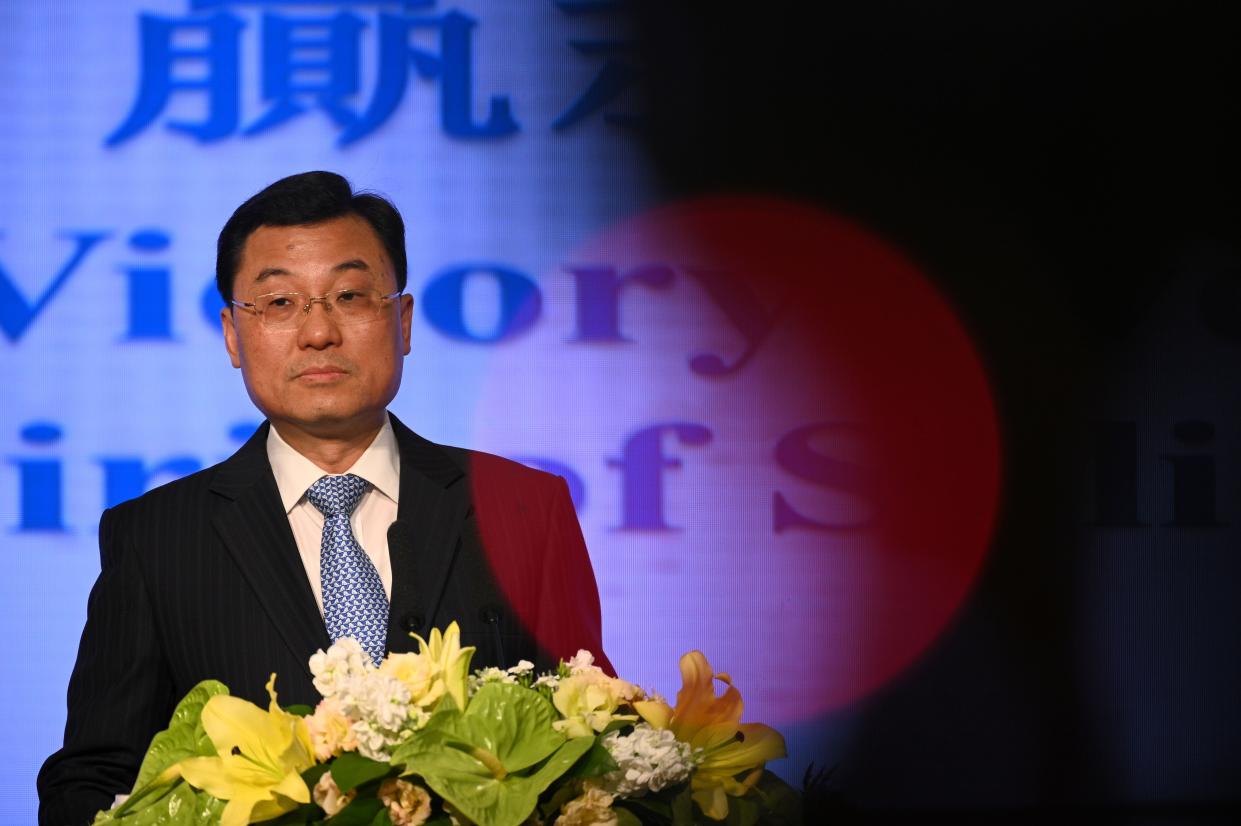Beijing says some Americans treat it as an ‘imaginary enemy’ as US-China talks turn tense

- Oops!Something went wrong.Please try again later.
One of China’s top officials has blamed the US for the deterioration in Chinese-American relations, complaining that some Americans treat China as an “imagined enemy” – an attitude that he said has contributed to a stalemate between the two countries.
China’s vice foreign minister, Xie Feng, made the remarks in a bilateral meeting with US Deputy Secretary of State Wendy Sherman asked the US to correct its “very dangerous China policy.” Mr Xie accused the US of creating an “imaginary enemy” and said it was the “investor of coercive diplomacy.”
Mr Xie told Ms Sherman: “The China-US relationship is now in a stalemate and faces serious difficulties. Fundamentally, it is because some Americans portray China as an imagined enemy.” He added that “the hope maybe that by demonising China, the US could somehow shift domestic public discontent over political, economic and social issues, and blame China for its own structural problems.”
Mr Xie continued: “The US keeps making an issue with China. It’s as if the US side has nothing to talk about except about China. We urge the United States to change its highly misguided mindset and dangerous policy.”
Responding to his comments, Ms Sherman said: “There are some things that rise above specific differences that are the global responsibility of great powers.” In an interview with AP, after her meeting with Mr Xie and Foreign Minister Wang Yi, Ms Sherman in the northern city of Tianjin after arriving in China late on Sunday.
And even as Mr Xie accused the US of “demonising” China, Ms Sherman called on China to “look beyond differences and work with the United States on difficult global issues such as climate and the pandemic as a responsible global power.”
Reuters reported that foreign journalists were not allowed into the hotel where the meeting took place, even though the Chinese media were allowed. The state media had on Sunday also reported that foreign minister, Mr Wang, had criticised the US for being unable to deal with others equally.
The breakdown in US-China relations is due to some people in the United States treating China as an "imaginary enemy," Chinese Vice Foreign Minister Xie Feng was quoted as saying https://t.co/XBCznDVP2L
— CNN (@CNN) July 26, 2021
Ms Sherman, meanwhile, denied Chinese accusations of the US suppressing China’s rise. The US has been a vocal critic of China on human rights to its “territorial ambitions” since Joe Biden took charge of the White House in January. Prior administrations have also been critical of China. The two countries have been at loggerheads on issues related to cybersecurity, technology and human rights.
Beijing has accused the United States of treating China like an “imaginary enemy” ahead of crucial diplomatic talks set for Monday between Chinese Vice Foreign Minister Xie Feng and U.S. Deputy Secretary of State Wendy Sherman https://t.co/kwjZTZf9g2
— The Daily Beast (@thedailybeast) July 26, 2021
Mr Xie, according to Chinese media, said in the meeting with Ms Sherman that “China wants to seek common ground while shelving differences.” Joe Biden has previously described the US-China relationship as “collaborative, competitive and adversarial” and said that the US will cooperate in areas such as climate emergency but confront China in others such as human rights.”
pics about US-China dialogue today.
1. Wang Yi was not there. Wendy Sherman talked to Xie Feng, No.5 vice minister of Foreign.
2. the interpreter with purple hair was still there. pic.twitter.com/34Sf6MPpyq— WEIWEI DAI (@WEIWEIDAI4) July 26, 2021
The high-level meeting took place days after China imposed sanctions on US individuals including former US commerce secretary Wilbur Ross in response to US sanctions on Chinese officials in Hong Kong.
Meanwhile, the Associated Press reported that the “goal of the talks is not to negotiate specific issues but to keep high-level communications channels open.” As per the Biden administration officials, “the U.S. wants to ensure that guardrails are in place to prevent competition between the countries from turning into conflict.”

